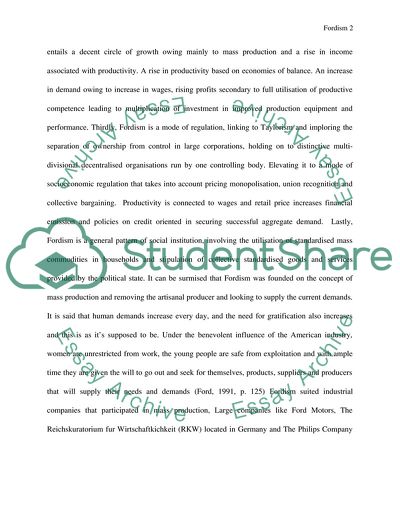Cite this document
(Fordism to Post-Fordism: Revolutionising Management Models Essay, n.d.)
Fordism to Post-Fordism: Revolutionising Management Models Essay. https://studentshare.org/technology/1544436-critically-evaluate-the-view-that-taylorism-and-fordism-have-been-replaced-by-post-fordism-as-the-means-of-organizing-work-in-a-capitalist-society
Fordism to Post-Fordism: Revolutionising Management Models Essay. https://studentshare.org/technology/1544436-critically-evaluate-the-view-that-taylorism-and-fordism-have-been-replaced-by-post-fordism-as-the-means-of-organizing-work-in-a-capitalist-society
(Fordism to Post-Fordism: Revolutionising Management Models Essay)
Fordism to Post-Fordism: Revolutionising Management Models Essay. https://studentshare.org/technology/1544436-critically-evaluate-the-view-that-taylorism-and-fordism-have-been-replaced-by-post-fordism-as-the-means-of-organizing-work-in-a-capitalist-society.
Fordism to Post-Fordism: Revolutionising Management Models Essay. https://studentshare.org/technology/1544436-critically-evaluate-the-view-that-taylorism-and-fordism-have-been-replaced-by-post-fordism-as-the-means-of-organizing-work-in-a-capitalist-society.
“Fordism to Post-Fordism: Revolutionising Management Models Essay”. https://studentshare.org/technology/1544436-critically-evaluate-the-view-that-taylorism-and-fordism-have-been-replaced-by-post-fordism-as-the-means-of-organizing-work-in-a-capitalist-society.


